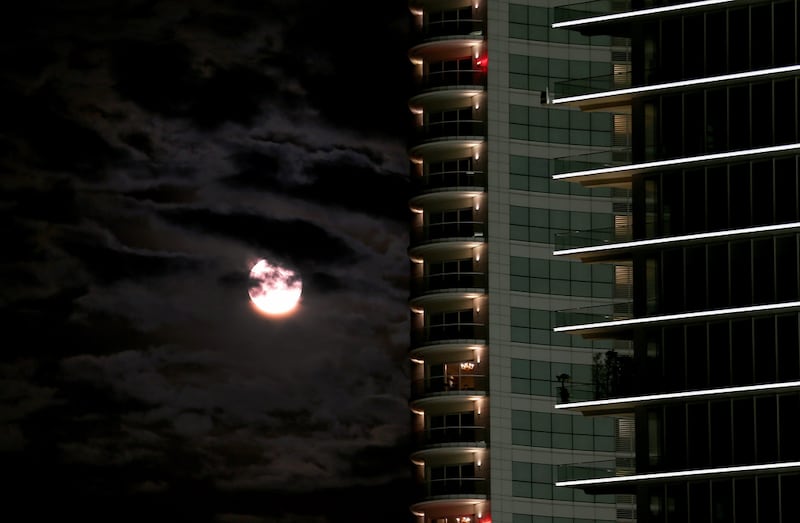It’s a bittersweet experience being Lebanese these days.
On the one hand, the American Journal of Human Genetics recently reassured us that more than 90 per cent of our genetic ancestry is derived from the Phoenicians, those enterprising ancient Canaanites who created a trading empire across the Mediterranean and beyond, thus reaffirming our historic business credentials and distancing us from the ISIL hooligan element with whom we have apparently been lumped by the rest of the World.
But while Phoenician innovation is alive and well - our architects have redefined the Beirut skyline and a new generation of businesspeople have created hotels, restaurants, clubs and bars that have made our nightlife and hospitality the most vibrant in the region - the country has fallen short of the thriving, bijoux, trading and financial entrepôt with a lucrative side line in niche tourism to which we aspire.
The reality is that we, the descendants of a people who created the greatest trading empire of its age, are “governed” by a gang of incompetents, thieves and warlords who appear to have left their mighty DNA, not to mention their integrity, at the door, and the people who perfected the art of the deal when the Trumps were mere hut dwellers, operate with infrastructure that would make many so-called third world African nations blush.
Electricity, water, roads, broadband, transparency are areas in which we fall short, forcing the private sector to do business with one hand tied behind its back. It’s either that or do what hundreds of thousands of Lebanese have done and move their talents abroad.
Take tourism. The “season” is in full swing and the indications are that 2017 will be more robust in numbers than previous years. Great! And yet there is widespread irritation across the sector that the government has never done enough to support the sector by cleaning up the country - environmentally that is - providing public transport, and drafting a well-defined tourism strategy. Tourism represents approximately 20 per cent of GDP and yet the ministry is allocated one of the smallest budgets.
_______________
Read more:
Lebanon parking is in a world of its own
Lebanon rubbishes its tourism industry
Lebanon’s charm still a draw for expat workforce
_______________
I suppose banking works, after a fashion. But ever since the mid 1990s the top banks have been happy to simply hold debt government debt in the form of T-bills and this has slowed the development of the corporate and investment banking sectors. More worrying is how the banks have become so butch that they will brook no criticism and, flying in the face of Basle regulations, are able to dictate terms to the central bank because they know their deposits have prevented the country from collapse. It’s not healthy.
So what are doing right? What are we exporting to show the world that our Canaanite genes are still in tiptop form? Apart from our human capital, our cuisine and a tiny wine industry that can trace its heritage directly back to the Phoenician golden age; you’d think there really isn’t much to go on. But we do have two products that very much capture the Lebanon de nos jours, and which have rather tellingly emerged from the rubble of the 1975-90 civil war.
Solidere is a dirty word in Lebanon for many people at the moment. The company that was founded in 1994 by the late former prime minister Rafik Hariri and tasked with rebuilding the bombed-out centre of Beirut, which admittedly it did with aplomb, is now seen as a bastion of nepotism and corporate monster that is blamed for pursuing greed over what best for a once-throbbing city centre. What was meant to be a showcase 472 acres on which the Arab elite would come and shop and dine and where the very, best Lebanese businesses would thrive, has been tarred with the brush of politics, political killing and sectarian demos and after the three turbulent years between 2005 and 2008, the area never really regained its lustre. Today, its hub, Parliament Square and the roads leading off it, is virtually empty. The business community, along with the restaurants and the bars, relocated to less volatile regions to the west and east of the city.
But Solidere, which once managed the biggest building site in the world, learned some valuable skills sets along the way and is in much demand for its property management expertise and its ability to handle property development on a huge scale. The company has an international branch and is currently involved in regeneration projects in Ajman in the UAE and in the Saudi Arabian cities of Jeddah and Riyadh.
And then we have another organisation that has used its post-war expertise to create a solid regional reputation: Hezbollah, the militant Shia party with an Iranian-funded armed wing that has turned into one of the most feared non-state armies in the world. Reviled by many in Lebanon for creating a state-within-a-state and advancing what is perceived as an Iranian agenda by bullying and the veiled (and not so veiled) threat of violence, Hezbollah supporters see the party and its militia as a regional game changer. Its combat experience against Israel and latterly against the opposition forces fighting the regime of Bashar Al Assad in Syria is now very much in demand among Shia fighters in Iraq and Yemen, where the Houthi rebels are fighting the Saudi-backed government.
So there we have it: construction and destruction. And yet it is ironic that two modern-day entities that have created such division, hostility and disappointment, having promised so much, are in their own way, thriving at the expense of those they let down.
It’s rather annoying actually.






